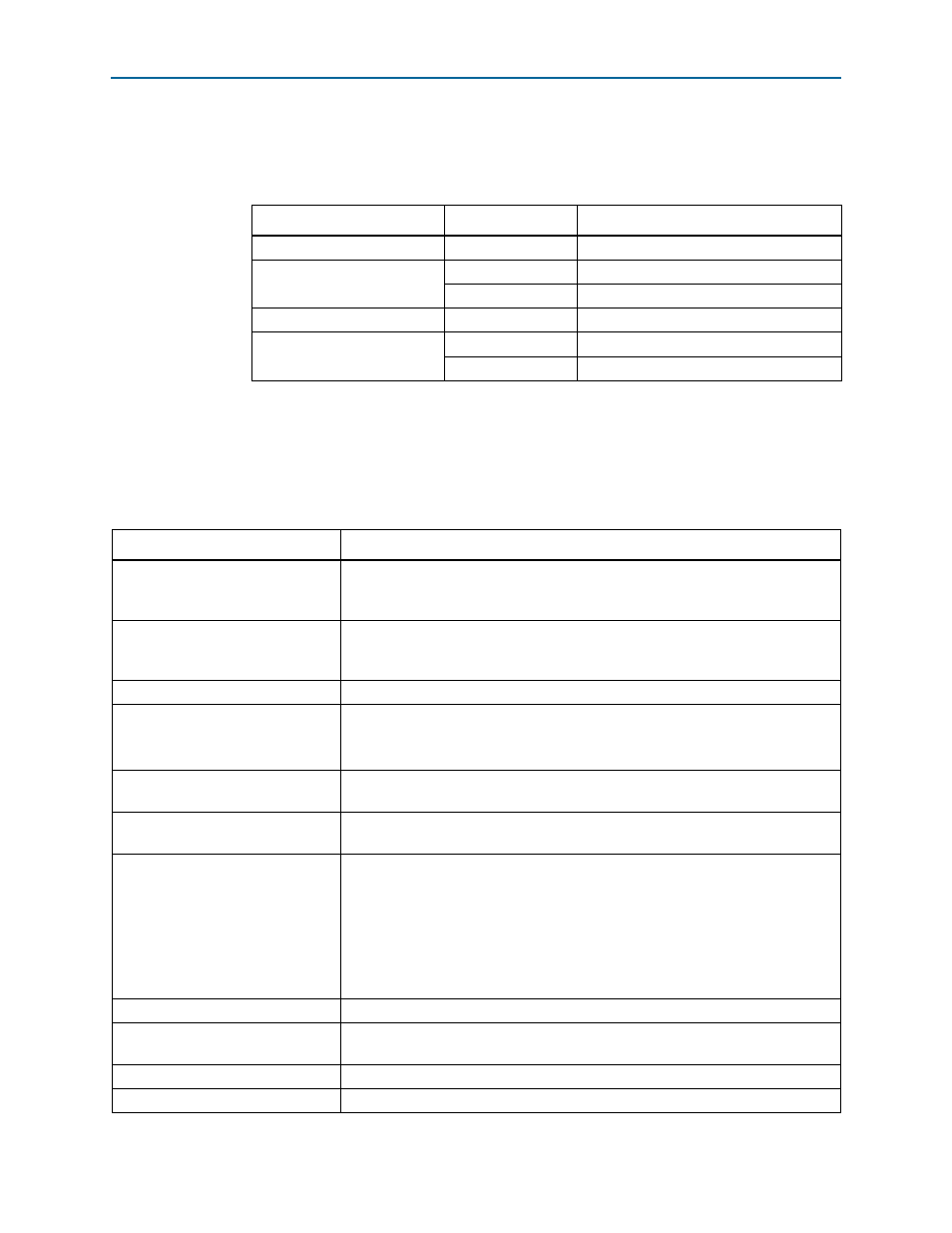How to contact altera, Typographic conventions – Altera Stratix V GX FPGA Development Board User Manual
Page 75

Additional InformationAdditional Information
Info–3
How to Contact Altera
October 2014
Altera Corporation
Stratix V GX FPGA Development Board
Reference Manual
How to Contact Altera
To locate the most up-to-date information about Altera products, refer to the
following table.
Typographic Conventions
The following table shows the typographic conventions this document uses.
Contact
Contact Method
Address
Technical support
Website
Technical training
Website
Product literature
Website
Nontechnical support (general)
(software licensing)
Note to Table:
(1) You can also contact your local Altera sales office or sales representative.
Visual Cue
Meaning
Bold Type with Initial Capital
Letters
Indicate command names, dialog box titles, dialog box options, and other GUI
labels. For example, Save As dialog box. For GUI elements, capitalization matches
the GUI.
bold type
Indicates directory names, project names, disk drive names, file names, file name
extensions, software utility names, and GUI labels. For example, \qdesigns
directory, D: drive, and chiptrip.gdf file.
Italic Type with Initial Capital Letters
Indicate document titles. For example, Stratix IV Design Guidelines.
italic type
Indicates variables. For example, n + 1.
Variable names are enclosed in angle brackets (< >). For example, <file name> and
<project name>.pof file.
Initial Capital Letters
Indicate keyboard keys and menu names. For example, the Delete key and the
Options menu.
“Subheading Title”
Quotation marks indicate references to sections in a document and titles of
Quartus II Help topics. For example, “Typographic Conventions.”
Courier type
Indicates signal, port, register, bit, block, and primitive names. For example, data1,
tdi
, and input. The suffix n denotes an active-low signal. For example, resetn.
Indicates command line commands and anything that must be typed exactly as it
appears. For example, c:\qdesigns\tutorial\chiptrip.gdf.
Also indicates sections of an actual file, such as a Report File, references to parts of
files (for example, the AHDL keyword SUBDESIGN), and logic function names (for
example, TRI).
r
An angled arrow instructs you to press the Enter key.
1., 2., 3., and
a., b., c., and so on
Numbered steps indicate a list of items when the sequence of the items is important,
such as the steps listed in a procedure.
■
■
■
Bullets indicate a list of items when the sequence of the items is not important.
1
The hand points to information that requires special attention.